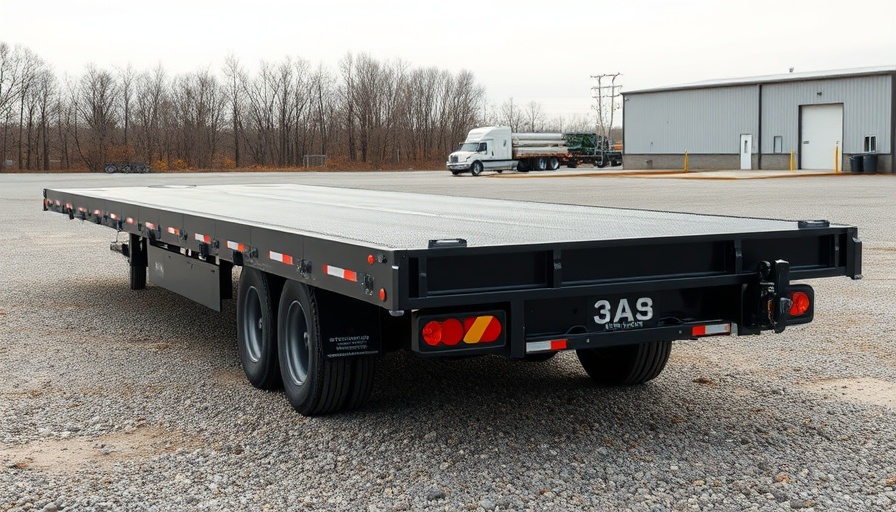
Understanding Your Trailer’s Capacity for Optimal Performance
When investing in a trailer, understanding its true capacity is crucial. It's not merely about the maximum weight; it’s a composite of various factors that determine sustainability and performance over time. Failure to grasp these elements can lead to inefficient operations and unnecessary expenditures on maintenance and replacements.
The Importance of Load Concentration
Load concentration deals with how weight is distributed across the trailer's deck. Each trailer has unique specifications that dictate how much of its capacity can be utilized effectively. For instance, while a 50-ton lowbed trailer may technically transport 50 tons, the actual utilization of the deck length matters significantly. The full potential of a trailer is realized only when its rated capacity is matched to the size and nature of the load it carries. Knowing whether a trailer requires the entire deck for that weight is essential for maximizing haul efficiency without compromising safety.
Weight Distribution and Regulatory Considerations
Another key factor in evaluating a trailer's capacity is the distribution of weight across its axles. Regulatory requirements vary widely from state to state, necessitating a collaborative approach between operators and manufacturers to establish the best trailer configuration for their specific needs. Customizing axle arrangements can optimize the load and ensure compliance with local laws, which enhances safety on the road.
Speed: A Core Capacity Indicator
The rated speed of a trailer heavily influences how much weight it can carry. For instance, trailers designed for speeds of 55 mph may handle loads differently than those rated for 65 mph. Recognizing that slower travel reduces wear and tear enables operators to better manage their equipment without compromising safety or efficiency.
Safety Ratings and Their Importance
Safety ratings add another layer of complexity to trailer capacity. These ratings provide insight into how much stress a trailer can withstand, crucial for ensuring that it won’t fail under peak load conditions. Manufacturers base these ratings on material strength and engineering configurations, allowing operators to predict the potential impact of road conditions on their trailer.
Maximizing Your Trailer’s Lifespan and ROI
Investing time and resources into understanding trailer capacities is vital for maximizing lifespan and ensuring a high return on investment. Considering the five capacity determinants—load concentration, weight distribution, speed, and safety—can yield substantial benefits. Tailoring the right specifications allows homeowners and business owners alike to enhance their operational effectiveness and reliability.
Actionable Insights for Trailer Selection
To make the most out of your trailer investment, consider these tips:
- Conduct thorough research on local axle weight regulations to choose the right specifications.
- Regularly assess and re-evaluate your load distributions to ensure optimal performance.
- Consult manufacturers for customization options that meet your operational needs.
By prioritizing these aspects, you will not just improve your trailer's performance, but protect your investment and promote safer, more effective transportation.
Ready for Your Next Trailer? Let’s Get Started!
If you aim to optimize your trailer's capacity for better maintenance and longevity, now is the perfect time to reassess your needs and explore options that best fit your business or personal requirements. Reach out to manufacturers or specialists to discuss the best features for your trailer solutions today!
 Add Row
Add Row  Add
Add 




Write A Comment